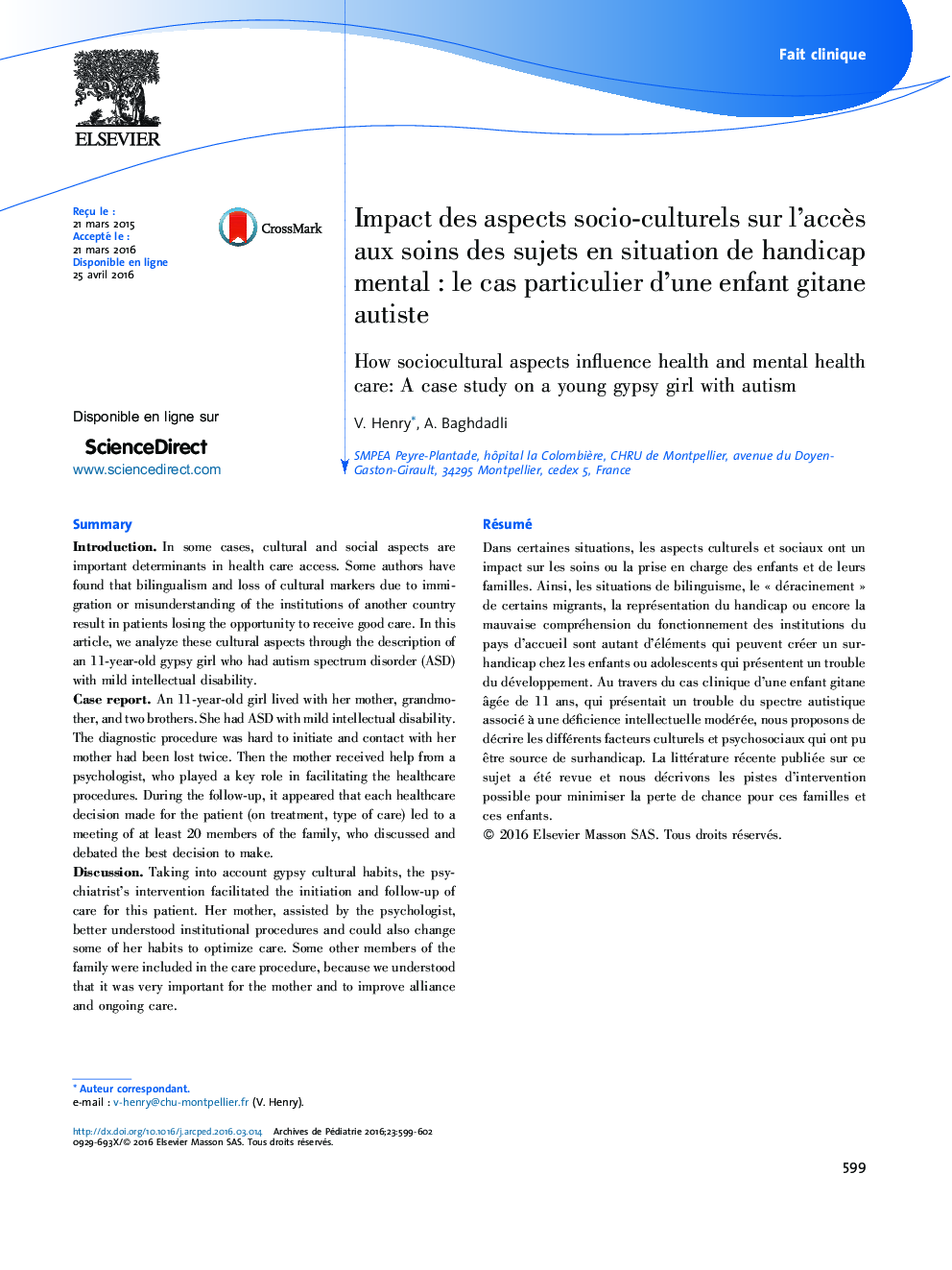| Article ID | Journal | Published Year | Pages | File Type |
|---|---|---|---|---|
| 4145631 | Archives de Pédiatrie | 2016 | 4 Pages |
RésuméDans certaines situations, les aspects culturels et sociaux ont un impact sur les soins ou la prise en charge des enfants et de leurs familles. Ainsi, les situations de bilinguisme, le « déracinement » de certains migrants, la représentation du handicap ou encore la mauvaise compréhension du fonctionnement des institutions du pays d’accueil sont autant d’éléments qui peuvent créer un surhandicap chez les enfants ou adolescents qui présentent un trouble du développement. Au travers du cas clinique d’une enfant gitane âgée de 11 ans, qui présentait un trouble du spectre autistique associé à une déficience intellectuelle modérée, nous proposons de décrire les différents facteurs culturels et psychosociaux qui ont pu être source de surhandicap. La littérature récente publiée sur ce sujet a été revue et nous décrivons les pistes d’intervention possible pour minimiser la perte de chance pour ces familles et ces enfants.
SummaryIntroductionIn some cases, cultural and social aspects are important determinants in health care access. Some authors have found that bilingualism and loss of cultural markers due to immigration or misunderstanding of the institutions of another country result in patients losing the opportunity to receive good care. In this article, we analyze these cultural aspects through the description of an 11-year-old gypsy girl who had autism spectrum disorder (ASD) with mild intellectual disability.Case reportAn 11-year-old girl lived with her mother, grandmother, and two brothers. She had ASD with mild intellectual disability. The diagnostic procedure was hard to initiate and contact with her mother had been lost twice. Then the mother received help from a psychologist, who played a key role in facilitating the healthcare procedures. During the follow-up, it appeared that each healthcare decision made for the patient (on treatment, type of care) led to a meeting of at least 20 members of the family, who discussed and debated the best decision to make.DiscussionTaking into account gypsy cultural habits, the psychiatrist's intervention facilitated the initiation and follow-up of care for this patient. Her mother, assisted by the psychologist, better understood institutional procedures and could also change some of her habits to optimize care. Some other members of the family were included in the care procedure, because we understood that it was very important for the mother and to improve alliance and ongoing care.ConclusionTaking into account cultural and social aspects is highly important for the management of care and the therapeutic alliance, especially in child and adolescent psychiatry.
